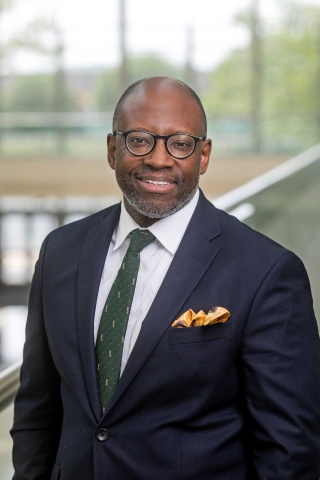Historically Black Colleges and Universities (HBCUs) have been the bedrock of black economic progress since 1837. Although America's 105 HBCUs represent only three percent of the nation's institutions of higher learning, they graduate nearly one-quarter of all blacks who earn undergraduate degrees. The virtues of a college education among blacks are under assault, however, by the celebration of ignorance and misogyny codified in much of mainstream hip hop. Thanks to a pathetic music video for the song “Rock Yo' Hips,” from Crime Mob's newly released CD “Hated On Mostly,” black colleges are being portrayed as nothing more than strip clubs and brothels.
Crime Mob's website alone should provoke massive protests on every HBCU campus in America. The mere juxtaposition of the words crime mob and college is outrageous. The naming of the group's mobile phone fan club, “Crime Mob College,” and the creation of a misogynistic video to “Rock Yo Hips,” set at a black college, provoke a real sense of despair. In the deplorable video, black college women dehumanize themselves while black men gawk and thrust at them. Black college cheerleaders dance like strippers, with lyrics linking them to “the pole,” and the black men with metal-plated teeth in this video appear to be in need of something called “books.”
The song is too revolting to quote at length but a few lyrics present a gross depiction:
Look, lil' buddy/cute in the face/She rock her hips to the bass/She take a sip when she wave/And wanna get wit Lil'J/After she dance on that pole/I pull my cash so quick and fast.
This sickening song is obviously written for the strip club “market,” so why did Warner Brothers film the video on a black college campus? Is it making a mockery of black colleges and black people in general? Why do young whites, Asians, Hispanics, and blacks revel in seeing blacks behaving ignorantly? Crime Mob “turns back the clock” on black progress more than any possible consequence that might follow from a repeal of government-forced Affirmative Action.
There are other reasons the “Rock Yo Hips” video is alarming. America's HBCUs are predominantly female (60 percent, or higher, on average) because of the absence of black men, resulting from their 52 percent high school dropout rates, according to the most recent available national data compiled by Jay Greene of the Manhattan Institute. As 45 percent of all black students drop out of high school, compared to only 28 percent among Asians, there is a growing market that denigrates black women and views educated blacks as an absurd fantasy. Ignorant lyrics and animalistic sexuality set to music are what Americans are demanding, and the music industry is happy to deliver. Americans of all races are sending a clear message: “We want music depicting black women as strippers and black men living as ignorantly as possible!”
Does this explain why there is such a devaluing of the black mind and dignity in much of today's hip hop? Men who celebrate ignorance often encourage others to do the same.
Equally alarming is that black colleges seem not to care. Crime Mob's MySpace.com page lists an April 13 booking at South Carolina State University, a historically black college founded in 1890. Why would a black university whose population is predominantly female invite a group that celebrates ignorance and misogyny to their campus?
“Rock Yo Hips” continues to climb up the Billboard singles chart for the eighth straight week. With its recent appearance on MTV's Hip-Hop show “Sucka Free” and the group's begging its confused fans to vote the song onto MTV's “Total Request Live” (TRL), it appears likely that the world will increasingly have opportunity to consume retrograde depictions of black people and American culture in general. Perhaps we are in need of a new civil rights movement in America — one that urges blacks not to mock their own educational opportunities and encourages American consumers to prefer to see all people in the most dignified manner possible.



